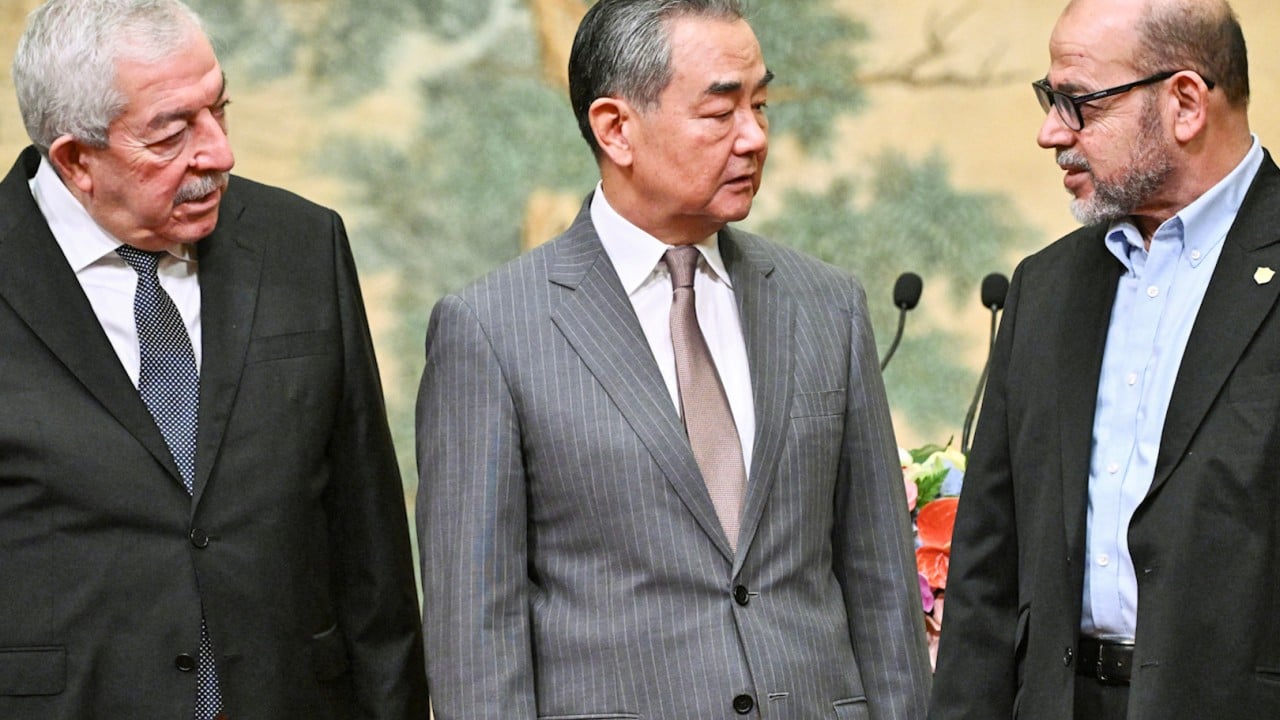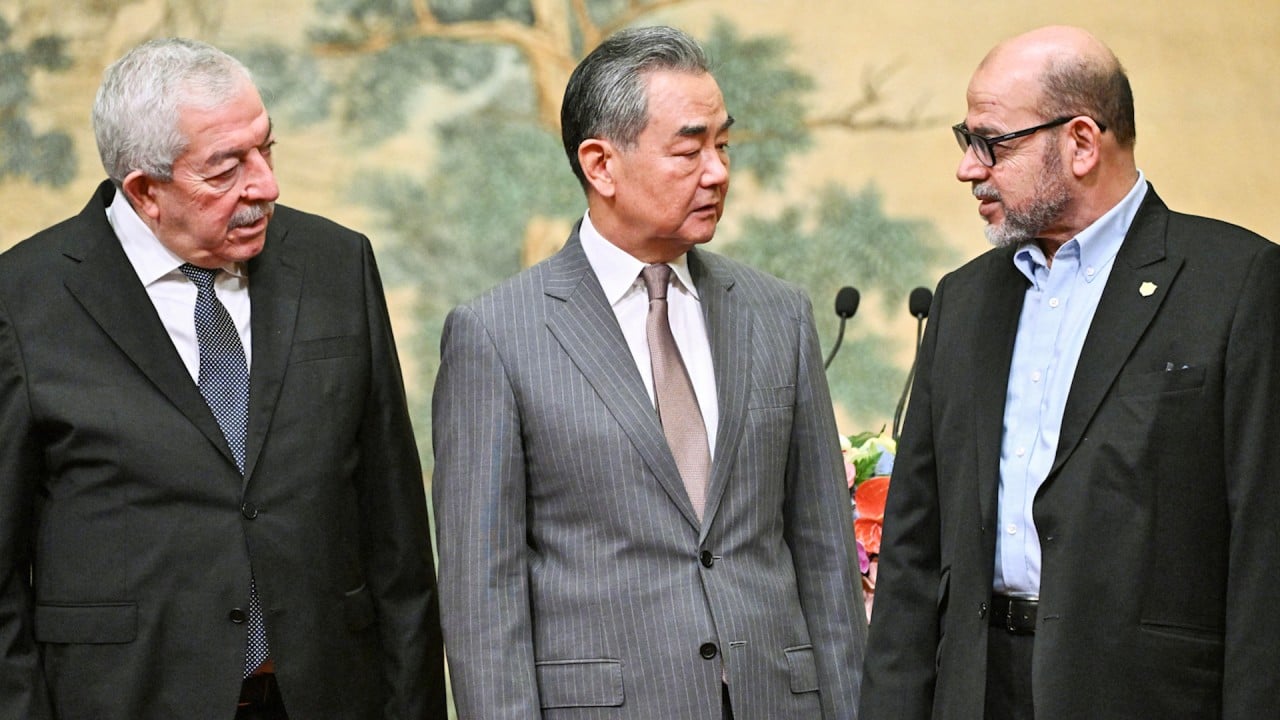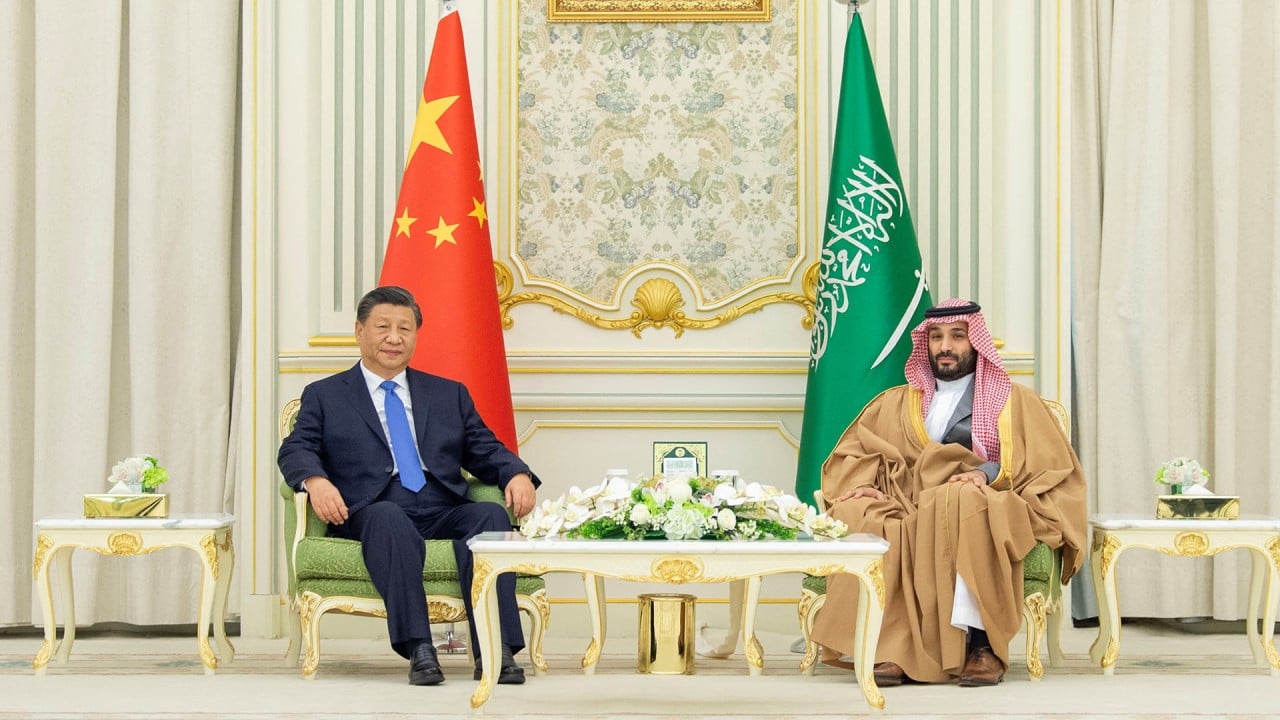Widely seen as an economic powerhouse, China is also emerging as a facilitator of peace. However, for better or worse, it is the actions of the United States that will ultimately determine the trajectory of the ongoing global conflicts.
The killing of Hamas political leader Ismail Haniyeh and the retaliation against Hezbollah in Beirut risk expanding the Gaza conflict into a wider regional war. Nonetheless, Israel remains undeterred. In July, during his address to a joint session of Congress, Israeli Prime Minister Benjamin Netanyahu delivered a robust defence of his country’s actions.
In the same week in Beijing, China helped broker an agreement between Hamas, Fatah and 12 other Palestinian factions. A major aspect of the agreement was that it included a reaffirmation of a two-state solution, which recognises the state of Israel. This development follows China helping to bring about the resumption of diplomatic relations between regional rivals Saudi Arabia and Iran last year.
China’s increased role as a mediator is important for stability in the Middle East. By fostering unity, Beijing’s efforts could help the region overcome internal conflicts and enhance its capacity to work for the common good.
China is not a direct party to any Middle East conflicts, but it is far from disinterested. With its substantial economic footprint in the region, a stable Middle East aligns with China’s strategic and economic interests.
In May, Beijing hosted the China-Arab States Cooperation Forum, focusing on deepening economic collaboration across various sectors, including energy and technological innovation, finance and trade. Saudi Arabia, eager to diversify its economy away from fossil fuels, has a willing partner in China for its transition to a greener economy.
Underpinning China’s engagement in the Middle East is President Xi Jinping’s Global Development Initiative, which aims to transform the world through economic cooperation. Through initiatives and organisations such as the Belt and Road Initiative, the Brics grouping and the Shanghai Cooperation Organisation, China aims to reshape the current global economic order.
Complementing that is the Global Security Initiative, which Beijing insists is not intended to challenge existing security frameworks such as the US-Saudi defence treaty or Nato. Although China has established a military base in Djibouti, Beijing maintains that its purpose is solely to protect China’s economic interests in the region.
China envisions itself as a global power primarily through its economic influence, aiming to create what it sees as a fairer world system. In the context of today’s conflicts, Beijing views economic development as the essential foundation for achieving sustainable peace and security.
In the West, China’s growing economic sway is perceived as a threat. The US is waging a trade war aimed at containing China’s rise. In the Middle East, the US-Saudi defence pact could affect China’s cooperation with the kingdom. The ongoing US-China tech war, for example, is likely to have an effect on China-Saudi collaboration in sensitive sectors such as artificial intelligence.
In the Asia-Pacific region, the US approach to China has taken on a military dimension, exemplified by security alliances such as the Aukus grouping with Australia and the United Kingdom. Additionally, Nato is considering pivoting to the East, seeking strategic partnerships with Japan, South Korea, Australia and New Zealand to uphold the Western-led rules-based international order. Meanwhile, the transatlantic alliance faces a persistent crisis closer to home: the unresolved war in Ukraine.
Leading up to a peace summit in June, Ukrainian President Volodymyr Zelensky lobbied for China to attend the meeting in Switzerland. Beijing refused, citing Russia’s absence as the reason. Instead, China and Brazil jointly announced in May an alternative six-point plan to promote a political solution to the Ukraine crisis.
The Switzerland peace summit did not garner the support it sought. India, Saudi Arabia and South Africa were among the countries that declined to sign the final communique, with the two former countries citing Russia’s absence and the latter Israel’s presence.
In July, Zelensky proposed a second peace summit in November, hinting that Russia could be invited to participate. It is notable that he scheduled the meeting before a potential change of leadership in the US. It appears Kyiv is concerned that the outcome of the US election could adversely affect the Ukraine crisis. This concern highlights the stark contrast between the ongoing conflicts in Ukraine and Gaza.
The US election is unlikely to alter the trajectory of the Gaza war. Netanyahu is expected to persist with a military approach. In contrast, former US president Donald Trump’s re-election could lead to Zelensky and Ukraine being forced into a negotiated settlement with Russia.
Zelensky appears to be Trump-proofing his options. In mid-July, Ukrainian Foreign Minister Dmytro Kuleba met Foreign Minister Wang Yi in Guangzhou, urging China to play a constructive role in the peace process. For his part, Wang reiterated Beijing’s support for a political solution to Russia’s invasion.
China is emerging as a transformative economic power. Through the Global Development Initiative, China is not only fostering economic growth but laying the economic groundwork for lasting global peace and stability. Countries mired in conflict can turn to China for peace facilitation, and for many of those countries the path to peace appears to be through Beijing.
However, the immediate resolution of ongoing conflicts lies elsewhere. The contrasting fates of Zelensky and Netanyahu suggest that it is Washington, not Beijing, that will ultimately shape the trajectory of the crises in Ukraine and Gaza. Despite Beijing’s increased diplomatic presence, it is the US that will ultimately determine if and when the wars in Europe and the Middle East come to an end.
Peter T.C. Chang is an research associate at Malaysia-China Friendship Association




